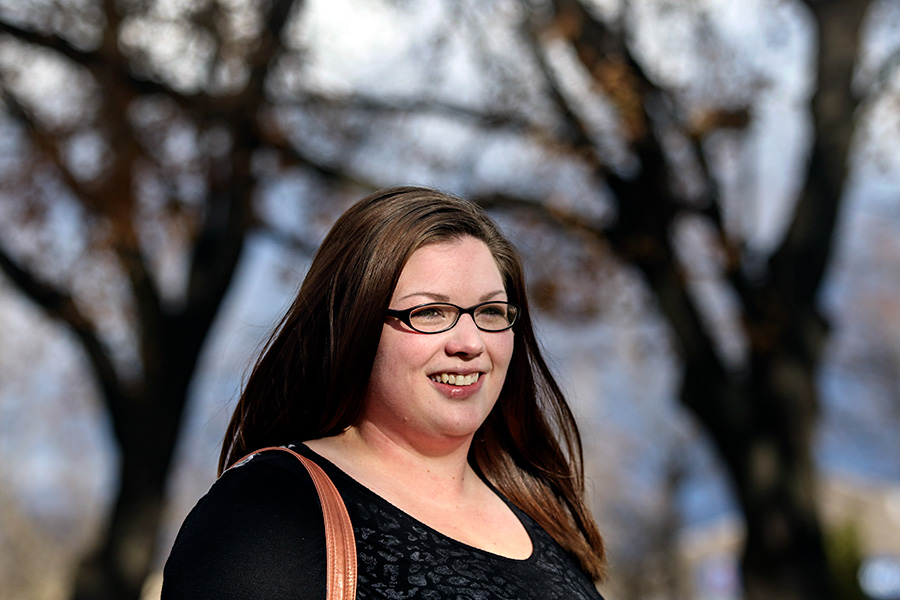Kalispell Woman on Road to Recovery Following Near-Fatal Snowmobile Accident
Ten months after suffering an “internal decapitation,” Ashley Gilbert has made an improbable recovery
By Justin Franz
Ashley Gilbert was lying in a Seattle hospital room when she realized just how close to death she was. The 27-year-old Kalispell woman had suffered an atlanto-occipital dislocation, an extreme spinal cord injury that is also known as an internal decapitation, while snowmobiling north of Columbia Falls.
Gilbert came across a study that stated that 70 percent of people who suffer an atlanto-occipital dislocation die immediately. According to a review of patients at two Seattle-area hospitals between 2001 and 2006, of the 69 people who suffered an atlanto-occipital dislocation, only seven survived to discharge.
“It was horrifying,” she said recently.
Ten months after she was in that Seattle hospital following her traumatic crash, the Kalispell woman has overcome improbable odds and is walking, talking, working and dealing with the everyday challenges of being a mom.
On Jan. 8, Gilbert was snowmobiling with her boyfriend Hunter and two friends. The last thing she remembers is unloading the sleds and heading into the woods north of Columbia Falls. About 10 minutes into the ride, Gilbert and Hunter, who were on the same snowmobile, hit an icy rut and were flung from the machine. Hunter hit a tree, while Gilbert, who was not wearing a helmet, was flung into an icy pile of snow at speed. Two other riding partners were ahead of them and didn’t see the crash. After a few minutes, they realized that their friends had fallen behind, so they turned around and returned to a grisly scene. Hunter, who received a severe concussion, was trying to help Gilbert, who was nearly unconscious with blood coming out of her mouth.
Two Bear Air took Gilbert to Kalispell Regional Medical Center, where doctors immediately decided to send her to a hospital in Seattle. Gilbert’s sister Sarah, an EMT and firefighter at the Smith Valley Fire Department, was able to get to the hospital in time to see her sister. At the time, she didn’t think she would ever see her again.
“I said my goodbye because I didn’t think she was going to make it,” Sarah said.
Gilbert remembers little of that day but does vaguely recall asking her sister to move her neck because it was a little sore. Her sister did not fulfill the request.
The day after Gilbert arrived in Seattle, she underwent a surgery to forge her spinal cord back together with plates. Gilbert remained sedated for four days and spent a total of two weeks in the Seattle hospital. By the end of January, she was back at KRMC for in-patient therapy.
When her sister visited her for the first time since returning from Seattle, she was shocked to see that Gilbert was able to stand up and, slowly, walk over to greet her. Gilbert did physical and occupational therapy for much of the spring. She also had double vision for a few weeks, necessitating the use of an eye patch. By May, she was out of therapy and off medications. She went back to work selling flooring the following month.
Gilbert now spends most of her time working and raising two 2-year-olds. She said she and her boyfriend both still have some memory loss, although it doesn’t dramatically impact their lives — it might result in the kids taking two baths in a day instead of one.
Years ago, Gilbert struggled with drug addiction but has been clean for more than four years, and after her recovery from her injury, she is determined to make something of herself. Right now, her biggest goal is to buy a house for her family.
“My life used to be really boring and then it got really bad,” she said of her struggles with addiction. “But now it’s really, really good.”